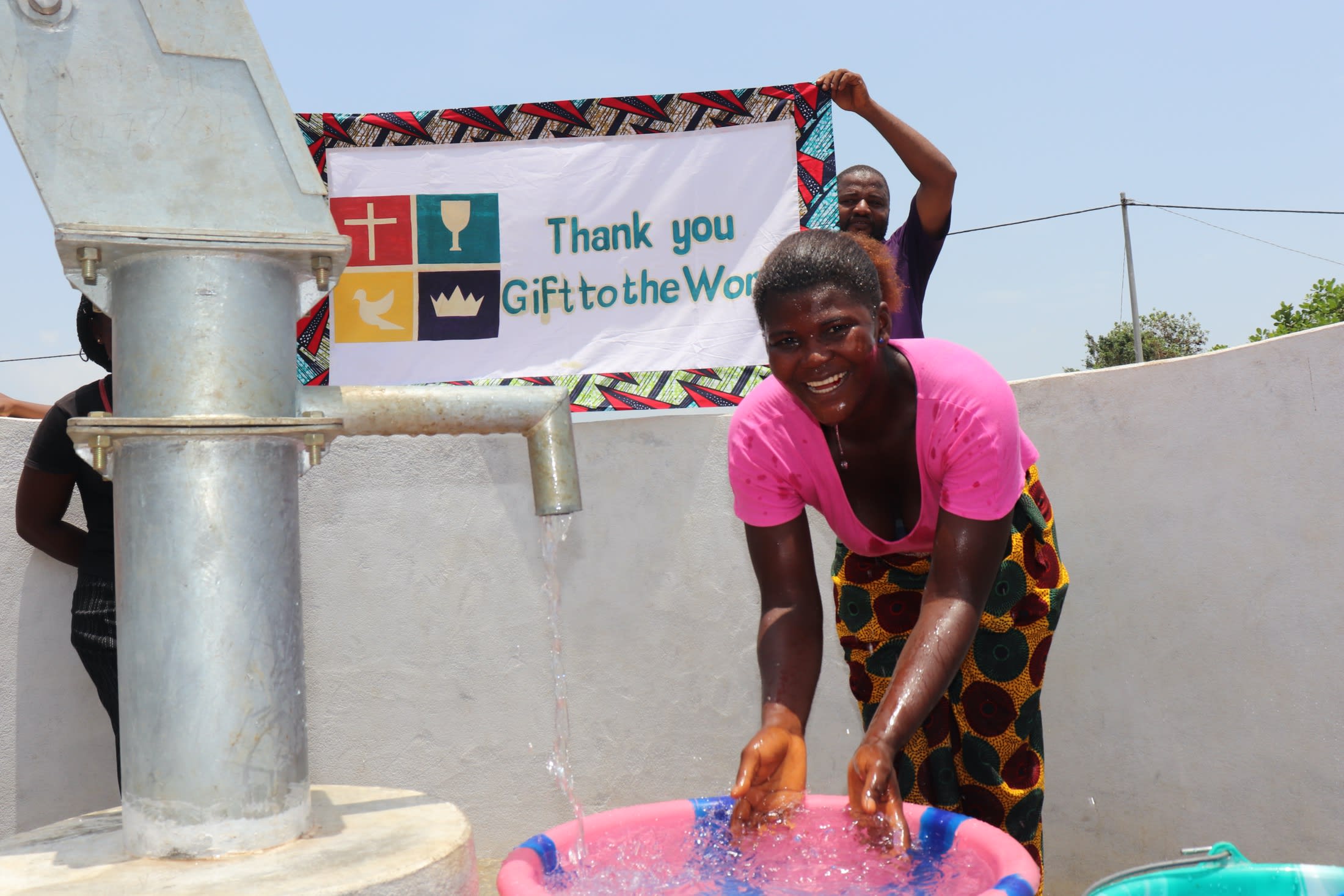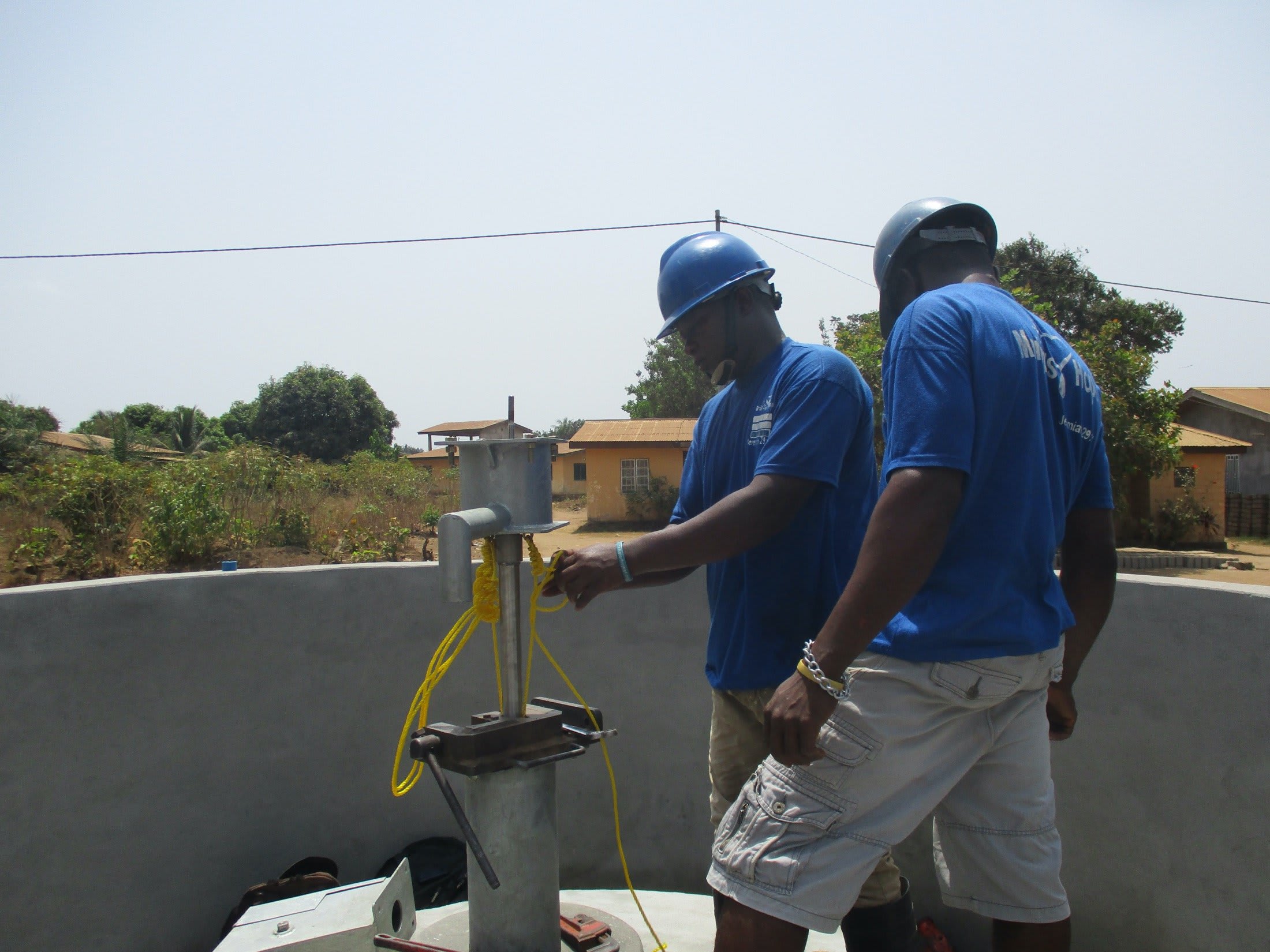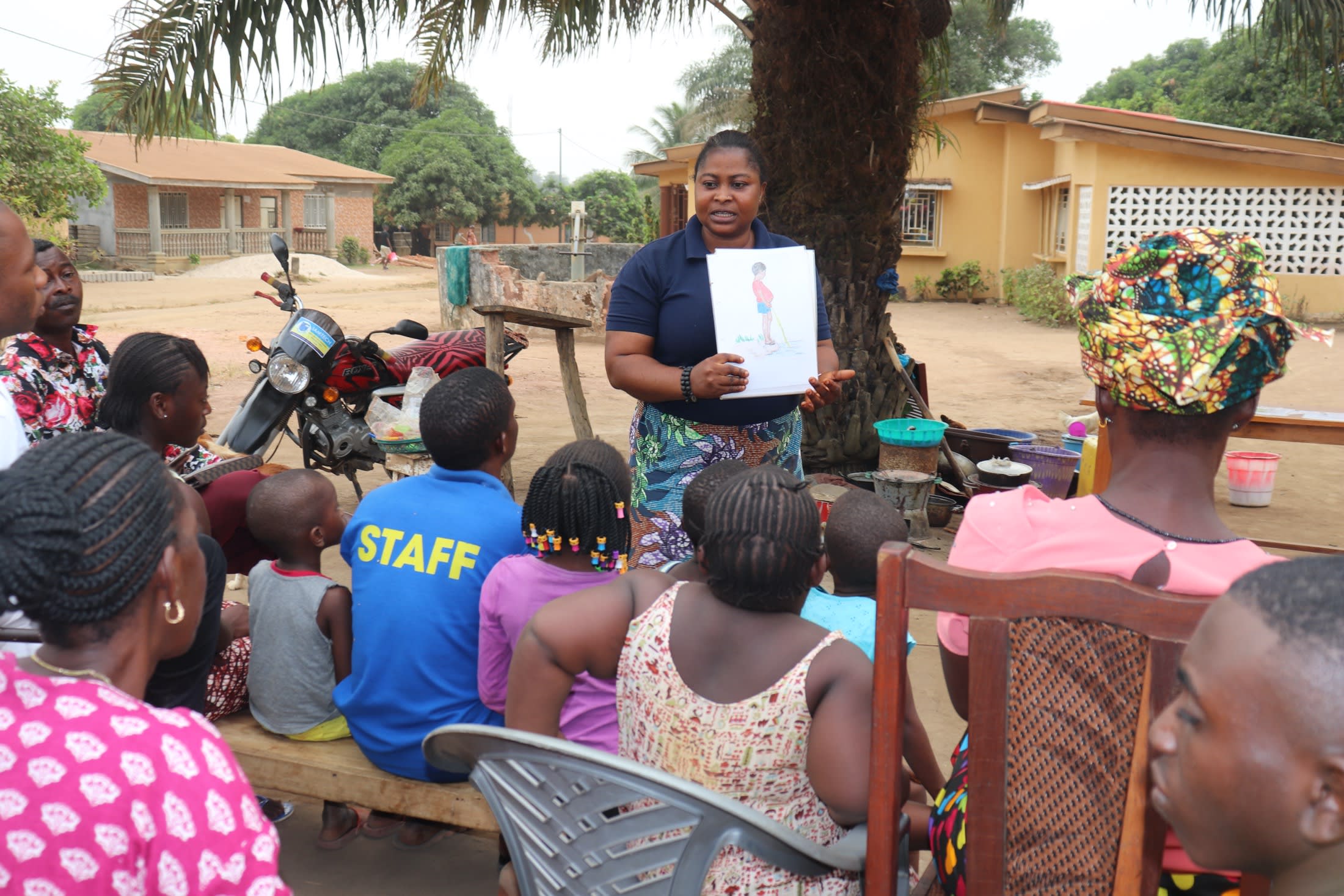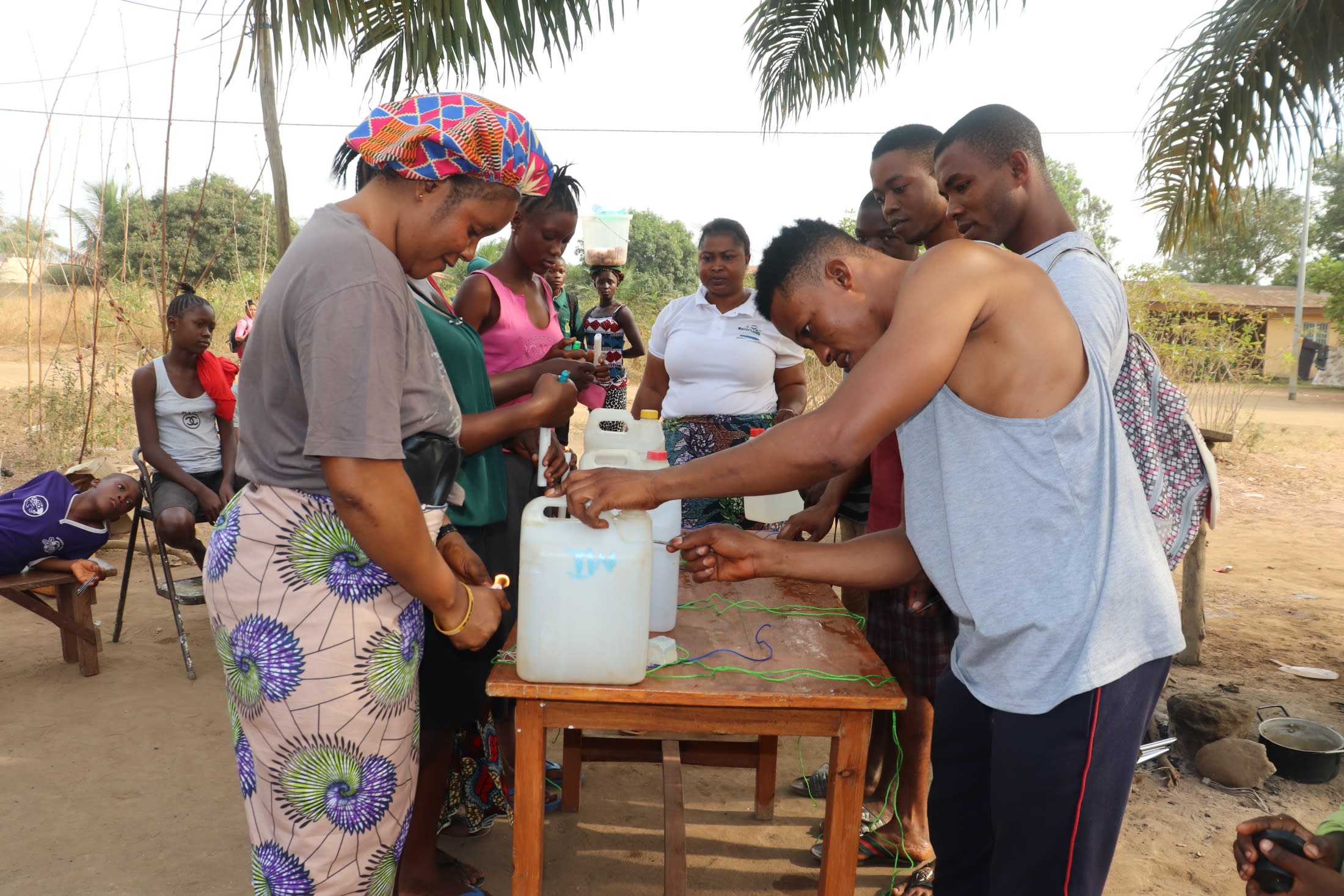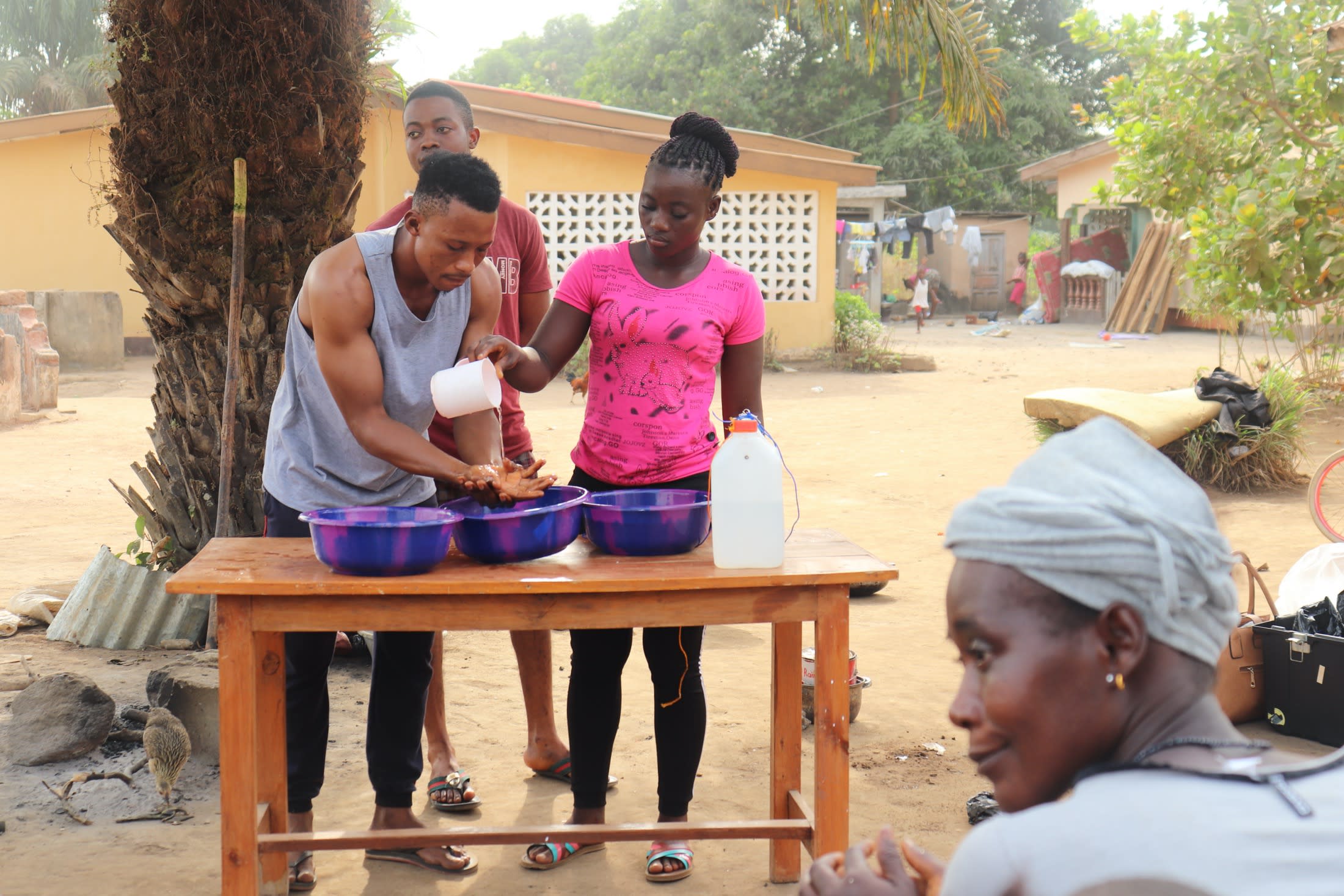The main water source for the 157 people who live near #24 Thullah Street in Tholmossoh, Sierra Leone is a hand-dug well. Tholmossoh is a densely populated area. The community is located between the largest market place in the Chiefdom and also minutes away from the home of the section chief Pa Alimamy Kapen Kargbo.
The water point was completed in 2009 and it has served this community successfully for nearly a decade. It was the only water point at the time of its completion, so people traveled miles to use it each day. The owner of the well is a woman by the name of Mabinty, she had asked all members of the community that fetch water from the well to do so at no cost. It is a rare instance where people can access water for free, so it makes the water point highly valued among community members.
But the well is experiencing problems. The well has recently started to go dry due to climate change causing the water table to drop. The once-reliable source of water is letting people in Tholmossoh down. As a result, people turn to another borehole well for water.
"The constant breakdown of this water point due to low water has sent our children far away from home looking for clean water," said Santigie Seasay, a local teacher.
In 2010, we supported the construction of a new borehole in this area to alleviate the pressure on this hand-dug well. It remains a reliable source since it was dug deeper than the first well, but the large crowds, especially in the dry season, causes a lot of arguments among neighbors. People wake up as early as 4:00 AM to get to the borehole and there are still lines forming that early.
Because of the high population in the area, a hand-dug well was installed last year by another organization. But the quality of the water is unknown and it too does not work during the dry season.
"The hardest time for me is when this water well is not working," said Ibrahim, a young boy who lives near the seasonal well.
"I have to go to other areas to fetch and it takes a lot of time away from my school work. I walk to school every day, and if I spend a lot of time fetching water I will be late for school."
Here’s what we’re going to do about it:
Well Rehabilitation
The well marked for this overhaul is dry for a few months every year and needs major work to supply adequate, clean water to the community year round. The pump will be removed, and a hand auger will be lowered inside and powered by a drill team. This hand auger will allow the team to drill several meters deeper to hit a sufficient water column that will ensure the well supplies water throughout all seasons.
As the team drills, casing will be installed, transforming the bottom of this hand-dug well into a borehole. PVC piping will connect this lower system directly to the pump, a construction that we know will also improve the quality of water.
Once this plan is implemented, everyone within the community will have access to safe drinking water in both quality and quantity, even through the dry months.
Hygiene and Sanitation Training
There will be hygiene and sanitation training sessions offered for three days in a row.
"The hygiene and sanitation in this community has been steadily improving even though we have a long ways to go," said Mammy Kamara.
After our visit, the hygiene and sanitation trainer decided it would be best to teach community members how to build a tippy tap (a hand-washing station built with a jerrycan, string, and sticks). They will use these tippy taps for handwashing demonstrations, and will also teach about other tools like dish racks and the importance of properly penning in animals.
These trainings will also strengthen the water user committee that manages and maintains this well. They enforce proper behavior and report to us whenever they need our help solving a serious problem, like a pump breakdown.

 Borehole Well and Hand Pump
Borehole Well and Hand Pump











